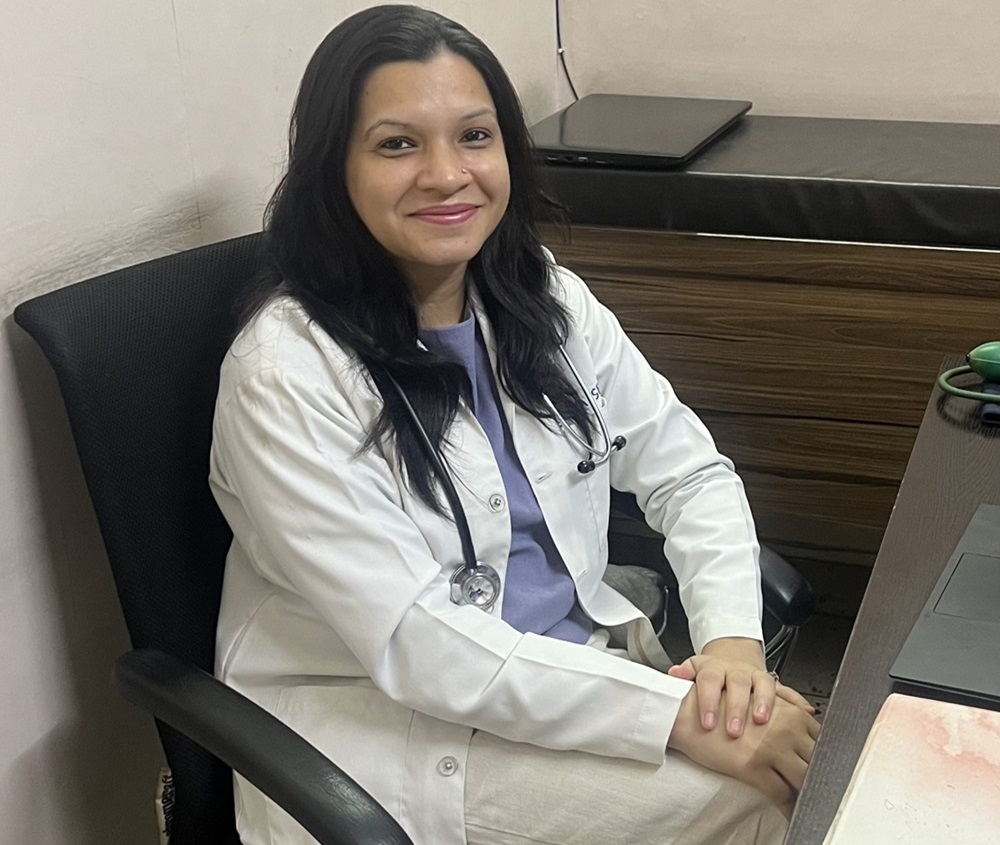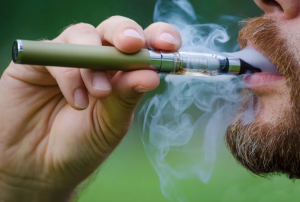Ear Popping: Causes, Symptoms, and Effective Treatments

Have you ever experienced a sudden, annoying “pop” in your ears while flying on an airplane or driving through the mountains? Ear popping is a common occurrence, often harmless, but sometimes a sign of underlying issues. This blog post will explore the causes, symptoms, and effective treatments for ear popping, taking you on a journey through the intricate world of our ears.
Key Takeaways
- Ear popping is caused by Eustachian tube dysfunction, earwax buildup, colds, allergies and infections.
- Symptoms include pain, pressure and hearing loss. Treatments may involve the Valsalva maneuver or over-the-counter decongestants.
- Seek medical help for persistent symptoms to prevent potential complications. Prevention tips such as swallowing can reduce frequency of ear popping.
Understanding Ear Popping
Ear popping results from involuntary contractions of the Eustachian tube, a small passage connecting the middle ear to the upper throat and sinus passages. Although typically innocuous, ear popping can indicate underlying issues such as earwax buildup, Eustachian tube dysfunction, or other ear-related problems.
Some common symptoms associated with ear popping include crackling sounds, pain, pressure, and hearing loss. To alleviate these symptoms and restore a sense of normalcy, individuals may turn to the Valsalva maneuver, over-the-counter decongestants, or TMJ exercises.
Causes of Ear Popping
Ear popping can arise from a variety of factors, such as Eustachian tube dysfunction, earwax buildup, or illnesses like colds, allergies, and ear infections, which cause changes in air pressure within the ear.
The upcoming sections will provide a deeper understanding of these causes and their contribution to ear popping.
Eustachian Tube Dysfunction
The Eustachian tube is a narrow passageway connecting the middle ear space to sinus passages and the upper throat. Dysfunction of the Eustachian tube can lead to ear popping and muffled hearing. Try our Phonak hearing aids today. Factors contributing to Eustachian tube dysfunction, which can cause ear popping and impair the ear’s functionality, include earwax buildup, colds, and allergies. Understanding the role of eustachian tubes in maintaining proper ear function is crucial for addressing these issues.
Approximately 5% of American adults suffer from Eustachian tube dysfunction. Individuals experiencing ear popping due to Eustachian tube dysfunction may find relief through the use of ear tubes, yawning, swallowing, and taking medications like decongestants to help open the tubes.
Earwax Buildup
Earwax, a secretion produced by the sulfur glands in the ear canal, can accumulate and impede natural drainage from the ear canal, potentially resulting in ear popping. Signs of ear popping due to ear wax buildup can include:
- Crackling sounds
- Pain
- Pressure
- Hearing loss
It is advisable to consult a healthcare professional for the treatment of earwax buildup, as manual removal should only be performed by a professional with the necessary tools to do it safely and effectively. Attempting to remove earwax yourself with cotton swabs or other improvised tools can lead to impacted earwax, worsening the symptoms and potentially causing further complications.
Colds and Allergies
Colds and allergies can cause mucus buildup, leading to ear popping and associated discomfort. The congestion and inflammation resulting from these conditions can obstruct the Eustachian tube or middle ear, preventing proper drainage of mucus. Sinus allergies, nasal allergies, and hay fever are known to cause ear popping due to mucus buildup.
During a cold, an increase in mucus and inflammation can cause obstruction in the Eustachian tube, leading to a buildup of pressure in the middle ear and subsequently the sensation of ear popping. Symptoms can be eased with the use of over-the-counter decongestants and other treatments, which will be elaborated on later.
Symptoms Associated with Ear Popping
As previously mentioned, some common ear symptoms associated with ear popping include crackling sounds, pain, pressure, and hearing loss. Tinnitus, a condition characterized by the perception of an auditory sensation in the absence of an external source, can also manifest as ringing, roaring, buzzing, crackling noises, or other sounds.
If you’re experiencing symptoms of ear popping, a healthcare provider may examine your ear for the following:
- Earwax
- Fluid
- Infection
- Damage to the eardrum
This will help determine the underlying cause. It’s important to address these symptoms early to prevent potential complications, such as hearing loss or middle ear infection.
At-Home Remedies for Ear Popping
If you’re suffering from ear popping, there are several at-home remedies that can provide relief. These include the Valsalva maneuver, over-the-counter decongestants, and TMJ exercises.
The upcoming sections will outline how these remedies can ease inner ear pressure and reestablish comfort.
Valsalva Maneuver
The Valsalva maneuver is a technique used to equalize pressure in the ears and provide temporary relief from ear popping. For successful execution of the Valsalva maneuver, one must inhale deeply, close the nostrils, and then attempt to exhale.
However, there are potential risks associated with the Valsalva maneuver. Individuals with heart valve disease, coronary artery disease, or congenital heart conditions should abstain from performing this technique. If you experience dizziness while attempting the Valsalva maneuver, discontinue the technique and consult a healthcare professional if necessary.
Over-the-Counter Decongestants
Over-the-counter decongestants can help reduce congestion and provide relief from ear popping and ear congestion due to colds or allergies. These drugs are effective in relieving nasal and Eustachian tube inflammation and congestion, thereby promoting proper mucus drainage and reducing the sensations of ear popping.
Non-steroidal anti-inflammatory drugs (NSAIDs) such as ibuprofen may also provide relief, while nasal sprays can offer temporary relief for those with allergies or mild congestion. Always consult a healthcare professional before beginning any over-the-counter medication for ear popping, especially if you are taking other medications or have underlying health conditions.
TMJ Exercises
Temporomandibular joint (TMJ) exercises can be beneficial in relieving tension in the jaw muscles, which may help with the sensation of ear popping. By improving jaw function, these exercises can reduce ear popping resulting from temporomandibular joint disorders.
Beneficial TMJ exercises include:
- Chin tucks
- Jaw stretches
- Resistance training for mouth closing and opening
- Tongue lifts
- Jaw glides
These exercises can align the jawbone, increase its range of motion, and alleviate any discomfort or pain associated with TMJ disorder, ultimately contributing to improved jaw function and reduced TMJ symptoms.
When to Seek Medical Help
It is important to seek medical assistance if ear pain or ear popping persists for more than two weeks or is accompanied by severe pain, discharge, or hearing loss. Failing to address these symptoms can lead to potential complications, such as hearing loss, middle ear infection, damage to the eardrum, and chronic otitis media.
If you’re experiencing persistent or severe ear popping symptoms, consult a healthcare professional. A comprehensive evaluation from a healthcare professional like Discount Daily Hearing and an assessment of your medical history will be conducted, followed by recommendation of suitable treatment options to tackle the root cause of your symptoms.
Prevention Tips
Preventing ear popping starts with managing allergies, avoiding loud noises, and practicing proper ear hygiene. Loud noises can cause pressure changes in the ear, leading to unpleasant sensations and popping. The probability of experiencing ear popping can be reduced by sidestepping loud noise and managing allergies with medication or lifestyle adjustments.
Some effective practices for maintaining proper ear hygiene and preventing ear popping include:
- Swallowing
- Yawning
- Chewing gum
- Using a saline spray
- Taking decongestants
- Avoiding sleeping during descent
Adopting these prevention strategies into your daily regimen can help lessen the occurrence and severity of ear popping instances.
Summary
In conclusion, ear popping is a common occurrence that can result from Eustachian tube dysfunction, earwax buildup, or colds and allergies. While typically harmless, it’s important to address any persistent or severe symptoms to prevent complications. At-home remedies such as the Valsalva maneuver, over-the-counter decongestants, and TMJ exercises can provide relief, but seeking medical help is crucial if symptoms worsen or persist for more than two weeks. By understanding the causes, symptoms, and treatments for ear popping, you can take control of your ear health and enjoy a more comfortable life.
Frequently Asked Questions
What does it mean when your ears keep popping?
Ear popping is a common symptom of clogged eustachian tubes, which may be caused by allergies, a cold, sinus infections or polyps and tumors in the nose. These issues affect the fluid and pressure levels in your inner and middle ear, leading to the popping and crackling sounds.
How do you get rid of pop ears?
To get rid of pop ears, try swallowing, yawning or chewing sugar-free gum to open your eustachian tubes. If that doesn’t work, take a deep breath and gently blow out of your nose while pinching your nostrils closed and keeping your mouth shut, known as the Valsalva maneuver. Use caution when performing this maneuver, as it carries a risk of rupturing the eardrum.
Does ear popping mean ear infection?
Ear popping is normal and not an indication of ear infection. In fact, when you can’t pop your ears it may be a sign of an Eustachian tube problem that should be checked out by a specialist.
How do you unclog an Eustachian tube?
Unclog your Eustachian tube by swallowing, yawning, or chewing sugar-free gum. If that doesn’t work, try taking a deep breath and gently blowing out of your nose while pinching your nostrils closed and keeping your mouth shut; if you hear a popping noise, your Eustachian tube has been successfully unclogged.
What are some common symptoms associated with ear popping?
Ear popping can cause a range of symptoms such as crackling sounds, pain, pressure, and even hearing loss.





